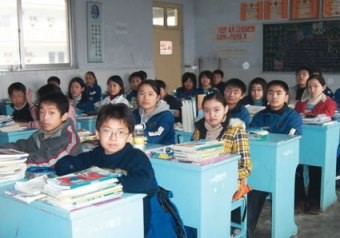The Ministry of Education and state language commission moved to save Chinese local dialects from extinction, which are under threat by China's urbanization that drove huge numbers of people to live very far from where they were born and raised, the Xinhua News Agency reported.
A survey published on Friday, July 31, by China Youth Daily showed that 22.1 percent of 2,003 respondents, mostly between the ages of 16 and 25, said that they seldom used their dialects in daily communications outside their hometown.
Putonghua or Mandarin serves as a lingua franca throughout the country, where various other dialects are also used, in addition to the different languages used by ethnic groups.
Shen Yuan, a student from Zhejiang Province who attends a university in Beijing, said that he finds it difficult to use his dialect in Beijing and he was worried that the idiom of his ancestors would soon become extinct.
"Children in my hometown are required by teachers to speak Mandarin from kindergarten and young people tend to use Putonghua in communication," Shen remarked.
Zhu Zhenmiao, who has a Ph.D. in Linguistics from Shanghai University, however, said that Mandarin had succeeded in facilitating communication among all Chinese people without driving out regional dialects, argots or accents, despite China's great diversity of languages and many ethnic groups.
"There are around 6,500 languages in the world. Each and every one is a lens for us to look into the thoughts, ideologies and cultures of the people who speak it. China's dialects are a crucial part of our national heritage," Zhu said.
This year, the Ministry of Education and state language commission had started researching on minority dialects and languages, with the aim of conserving and developing the nation's linguistic legacy.
The newspaper reported that both dialect speakers and linguistic experts have expressed enthusiasm on the role of the Internet in preserving the country's dwindling vernaculars.
"Articles, videos, music and almost anything related to language can be curated on the Internet and expand, or at least preserve, the value of dialects to their speakers and other interested people," Shen added.



























